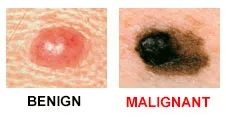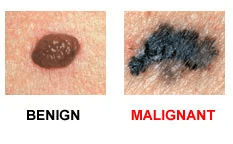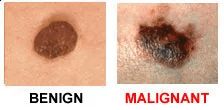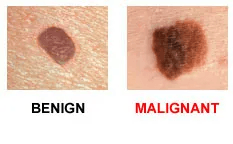- About
- Services
- Patient Information
- Specials
- Shop
- Locations
- Contact Us
Did you know that men are less likely to see their doctor about a health issue than women? Join us this June for Men’s Health Month as we encourage the men in our lives to take control of their health and for families to teach young boys healthy habits throughout childhood.
This month is a time to heighten men’s awareness of preventable health problems and encourage early detection and treatment of diseases including cancer, heart disease, and depression. Along with tips on men’s skin health, learn how to encourage the man in your life to go to the dermatologist for a skin check from the experts at Affiliated Dermatology.
Let’s remind our men that the dermatologist is their partner in skin health! According to the CDC, the leading causes of death among men are heart disease, cancer, and accidental death. Men are more likely to skip health checkups, including skin cancer screenings, and are more likely to take chances with their health choices. Encourage men to see a dermatologist for regular skin exams and to learn about their family health history. Many of the major health risks that men face can be prevented with a healthy lifestyle: regular exercise, a healthy diet, not smoking, stress reduction, and alcohol consumption in the moderate range (no more than two drinks a day) if at all. Regular checkups and screening tests can spot disease early; when it’s easiest to treat.
For men in Arizona, it’s an especially good time to talk about skin cancer, the most common form of cancer in the U.S. Melanoma is the most serious type of skin cancer and affects men and women differently. Men are more at risk of developing melanoma than women and according to the American Academy of Dermatology melanoma seems to strike men harder because men are typically less knowledgeable about skin cancer prevention and detection as women and therefore are less likely to apply sunscreen. This lack of knowledge may delay or prevent early diagnosis and treatment of melanoma and other nonmelanoma skin cancers. According to The Skin Cancer Foundation:
When detected early, the 5-year survival rate for melanoma is 99%. Melanoma is the deadliest form of skin cancer with most cases attributable to UV (ultraviolet) exposure. Every person—regardless of age, race, or ethnicity—should use a daily sunscreen to help protect against UV rays. Additionally, researchers believe that a major cause may lie in men’s skin and how it differs in thickness than women’s skin. Men have thicker skin with less fat beneath and contain more collagen and elastin to keep the skin firm and tight. These differences may make men’s skin more likely to be damaged by the sun’s ultraviolet rays.
Skin cancers appear in many shapes and sizes, so it’s important to know your skin and learn the warning signs associated with this highly curable skin disease—when caught and treated early. Perform a monthly skin exam at home and look for spots or sores that continue to itch, hurt, crust, scab, or bleed. Also, any open sores that do not heal within three weeks can be a warning sign for skin cancer. If you see a mole or spot that is new, changing, or unusual, we recommend that you get checked by a dermatologist right away as it could be skin cancer or precancer. The “ABCDE” rule is a useful guide in helping you identify high-risk lesions or potential malignancies:




E is for Evolving. If the mole/mark is changing in size, shape, or color. Has the spot changed during the past few weeks or months? Any change in size, shape, color or elevation of a spot on your skin, or any new symptom in it, such as bleeding, itching or crusting, may be a warning sign of skin cancer.

Most men avoid seeing a doctor until the last possible minute, no matter what seems to be ailing them. Whether it’s a head cold, a twisted ankle, or an unidentified rash that’s driving them crazy, men will self-diagnose and feel good about it. But ask any man who has had an attack of athlete’s foot or a bout with jock itch that won’t go away, and they just might concede that they need medical help every now and then. Below, are the most common rashes that men get and don’t like to talk about!
Rashes will come and go, but you can do your part to prevent them and treat them before they get worse.
On a daily basis, our skin comes into contact with various outside dangers like UV rays, toxic pollutants, and more. Since our skin is the only barrier we have protecting us from the harmful things that we encounter in everyday life, we need to treat it with the utmost care. In addition to the risk of skin cancer, the summer season brings challenges to our skin. The sun is cranking and the moisture in the air is usually low. This leaves our skin dry. Without its proper moisture barrier, the skin can become irritated, inflamed, and even fissured (aka cracked). Many consequences stem from this. Developing a good skincare regimen for both your face and body is important when trying to maintain good skin health.
Many articles and resources out there tend to highlight skincare routines that are geared towards a female audience, while overlooking the male one. To give men some guidance on how to start or maintain their skin journey, here is a checklist on how to take care of your skin this summer. To counter flaky, scaly skin, the experts at Affiliated Dermatology share this advice:
For men who tend to neglect their skin health, learn how to change your habits and start giving your skin a little TLC with our step-by-step guide to getting your skin in shape. A few small steps can go a long way in keeping you healthy and could lower your risk of skin cancer. Apply sunscreen regularly, limit your exposure to the sun, and schedule your yearly skin exam with your dermatologist.
Dermatologist intervention is key in catching skin cancers when they are easier to treat. So don’t be the average man—get on board and check the skin you’re in today.
A full-service dermatology group offering services in general dermatology, skin cancer detection and treatment, Mohs surgery, aesthetics, and allergy. At our Valley-wide locations, we take pride in our dedication to help inspire and empower you to make educated, healthy decisions about skin care.
Follow Us Online:
 Scroll Up
Scroll Up